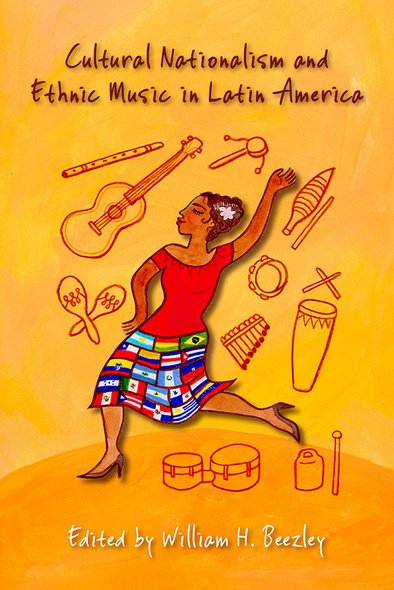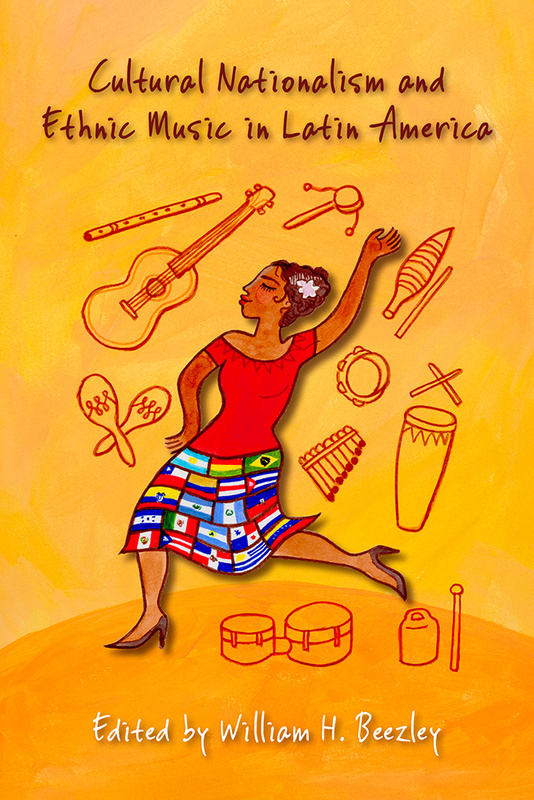
Cultural Nationalism and Ethnic Music in Latin America
Music has been critical to national identity in Latin America, especially since the worldwide emphasis on nations and cultural identity that followed World War I. Unlike European countries with unified ethnic populations, Latin American nations claimed blended ethnicities--indigenous, Caucasian, African, and Asian--and the process of national stereotyping that began in the 1920s drew on themes of indigenous and African cultures. Composers and performers drew on the folklore and heritage of ethnic and immigrant groups in different nations to produce what became the music representative of different countries. Mexico became the nation of mariachi bands, Argentina the land of the tango, Brazil the country of Samba, and Cuba the island of Afro-Cuban rhythms, including the rhumba. The essays collected here offer a useful introduction to the twin themes of music and national identity and melodies and ethnic identification. The contributors examine a variety of countries where powerful historical movements were shaped intentionally by music.
(Cultural Nationalism and Ethnic Music in Latin America) is an eclectic collection that covers a wide range of music, and the writing is accessible to nonspecialists in both music and history.'--Kristin Dutcher Mann, H-Nationalism
The several intriguing contributions to this collected volume combine to present a variety of angles and perspectives regarding the development of musical nationalism in Latin America and should provide an engaging and informative experience for students and scholars alike.'--Eric A. Galm, The Americas
William H. Beezley is a professor of history at the University of Arizona. He is the author and editor of dozens of books and articles, most notably Judas at the Jockey Club and Other Episodes of Porfirian Mexico, and he is the editor-in-chief of the Oxford Research Encyclopedia of Latin American History.
Acknowledgments
Introduction. The Rise of Cultural Nationalism and its Musical Expressions
William H. Beezley
Chapter One. Music and National Identity in Mexico, 1919-1940
William H. Beezley
Chapter Two. La Hora Industrial vs. La Hora Intima: Mexican Music and Broadcast Media Before 1934
Sonia Robles
Chapter Three. Guatemalan National Identity and Popular Music
William H. Beezley
Chapter Four. Cuban Music: Afro-Cubanism
Alejo Carpentier
Chapter Five. An Accidental Hero (Cuban Singer in the Special Period)
Jan Fairley
Chapter Six. Cuzcatlán (El Salvador) and Maria de Baratta's Nahualismo
Robin Sacolick
Chapter Seven. Cumandá: A Leitmotiv in Ecuadorian Operas? Musical Nationalism and Representation of Indigenous People
Ketty Wong
Chapter Eight. Dueling Bandoneones: Tango and Folk Music in Argentina's Musical Nationalism
Carolyne Ryan Larson
Chapter Nine. Carnival as Brazil's "Tropical Opera": Resistance to Rio's Samba in the Carnivals of Recife and Salvador, 1960s-1970s
Jerry D. Metz Jr.
Chapter Ten. The Opera Manchay Puytu: A Cautionary Tale Regarding Mestizos in Twentieth-Century Highland Bolivia
E. Gabrielle Kuenzli
Chapter Eleven. Sounding Modern Identity in Mexican Film
Janet Sturman and Jennifer Jenkins
List of Contributors
Index




